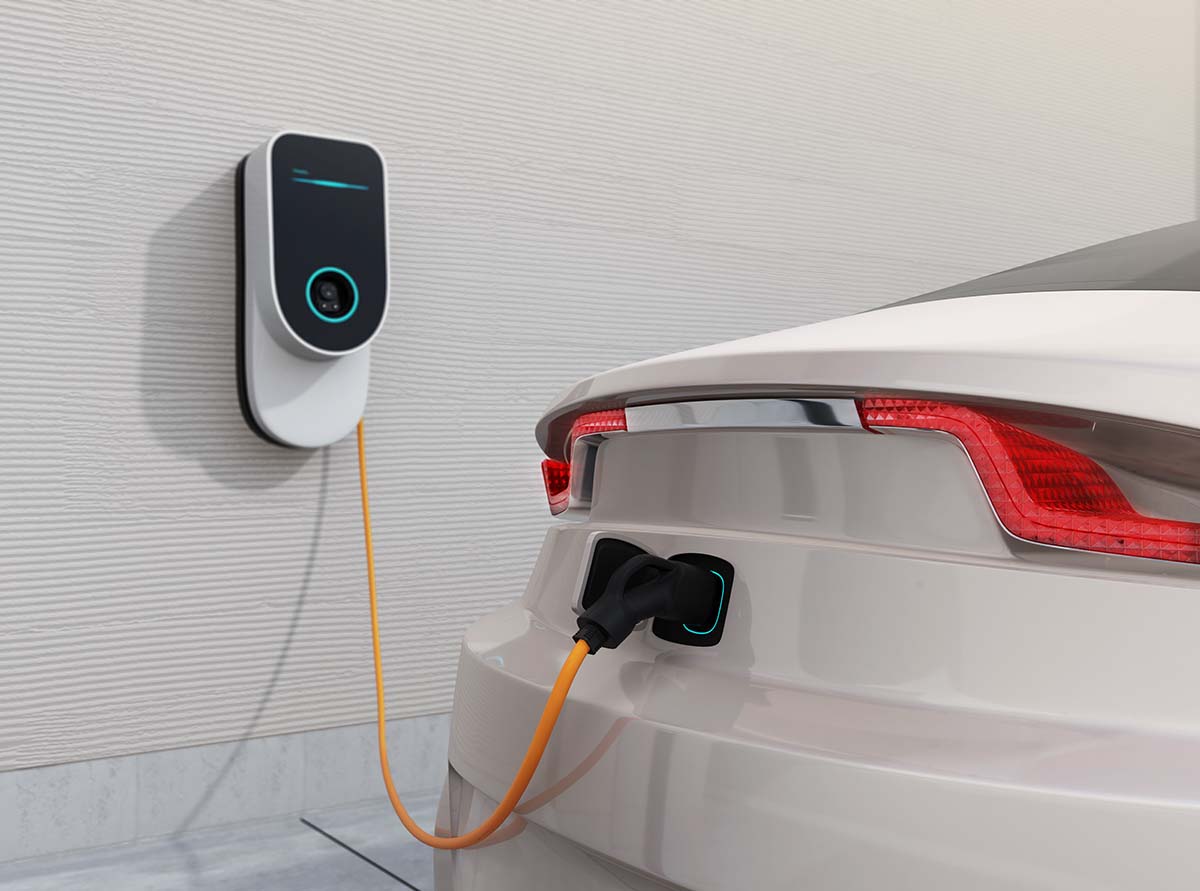2021 Cost to Install a Level 2 EV Charger at Home

Installing a Level 2 EV charger in your home can enable you to achieve 25 to 30 miles of driving per hour of charging. Most electric vehicles can be fully charged in about four hours, while a Level 1 charger can take several times that. Having a Level 2 charger can therefore be very convenient. But they are an investment, and the cost is highly variable, as chargers are available in 16-to-80-amp strengths, all which run on a 240-volt home circuit.
Several elements need to be considered when determining cost. These include the equipment, installation cost, and/or use of a residential solar power system. Here’s a look at these and other factors to help you estimate the total cost.
Equipment Costs
Electric vehicle supply equipment can cost anywhere from $500 to up to $2,200 to purchase, according to HomeAdvisor. Level 2 models are available in direct wire (hardwired to your home) and portable plug-in versions. Other considerations include whether the charger can fit any car with an adapter or is specific to one type of vehicle, is rated for indoor or outdoor use, and if it has additional features such as Wi-Fi.
Installation and Labor
Labor rates for your area, materials, and other variables impact installation costs. A simple installation that links the EV station to your electrical service box can range from $800 to $1,300. Costs tend to run higher in the Western and Northeastern U.S. and lower in the Central and Southeast states.
Depending on your needs, installation and labor can run higher than that, especially if your garage needs modifications such as adding a new electrical circuit. On average, electricians charge from $40 to $100 per hour for labor alone. Longer, more complex installations can therefore run up the total cost quite a bit, such as installing a wall mount rather than a portable unit.
Solar System Purchase/Installation
If you’re planning to power an EV charger with a solar panel system, expect to spend anywhere from roughly $17,000 to nearly $32,000. A percentage of installation costs can be deducted from your taxes via the federal investment tax credit. Solar system installation costs are dropping while energy prices are rising, so going solar can pay off in the long run.
You’ll also need to consider the capacity required. The Chevrolet Bolt, one of the more efficient EVs on the market, requires at least a 3.6 kW system for a 50-mile daily range, so this is something to think about when shopping around. With tax credits considered, an efficient 6 kW system installed in California ranges from $12,000 to $15,000.
Permitting
A permit for EV charger installation is usually under $200. It is not a significant price factor but can affect the timeline of your project, especially if changes to structures and electrical lines are needed. Permit costs vary by location and include other fees, such as for applying for one. Research the required permits in your area before proceeding, as fines for violating local regulations can be quite high.
Vehicle Charging Costs
The price of electricity in your area and whether you charge your vehicle during peak or off-peak hours affect the cost of charging your car. On average, fully charging a battery costs about $2.50, or about $25 to $35 per month assuming you give it a 30 mile charge each night. On the other hand, filling up at a public charging station, which averages $0.11 to $0.15 per kilowatt-hour, can cost anywhere from $2 to $8 to fill up.
Contact Us for EV Charger Installation
Express Electrical Services specializes in installing Level 1, Level 2, and DC Fast Charging systems. Our knowledgeable team can help determine what type of charger you need and install a practical Level 2 system, for which you can get a rebate on in California. Call 323-727-7799 today for help with EV charger installation, repair, and maintenance.
